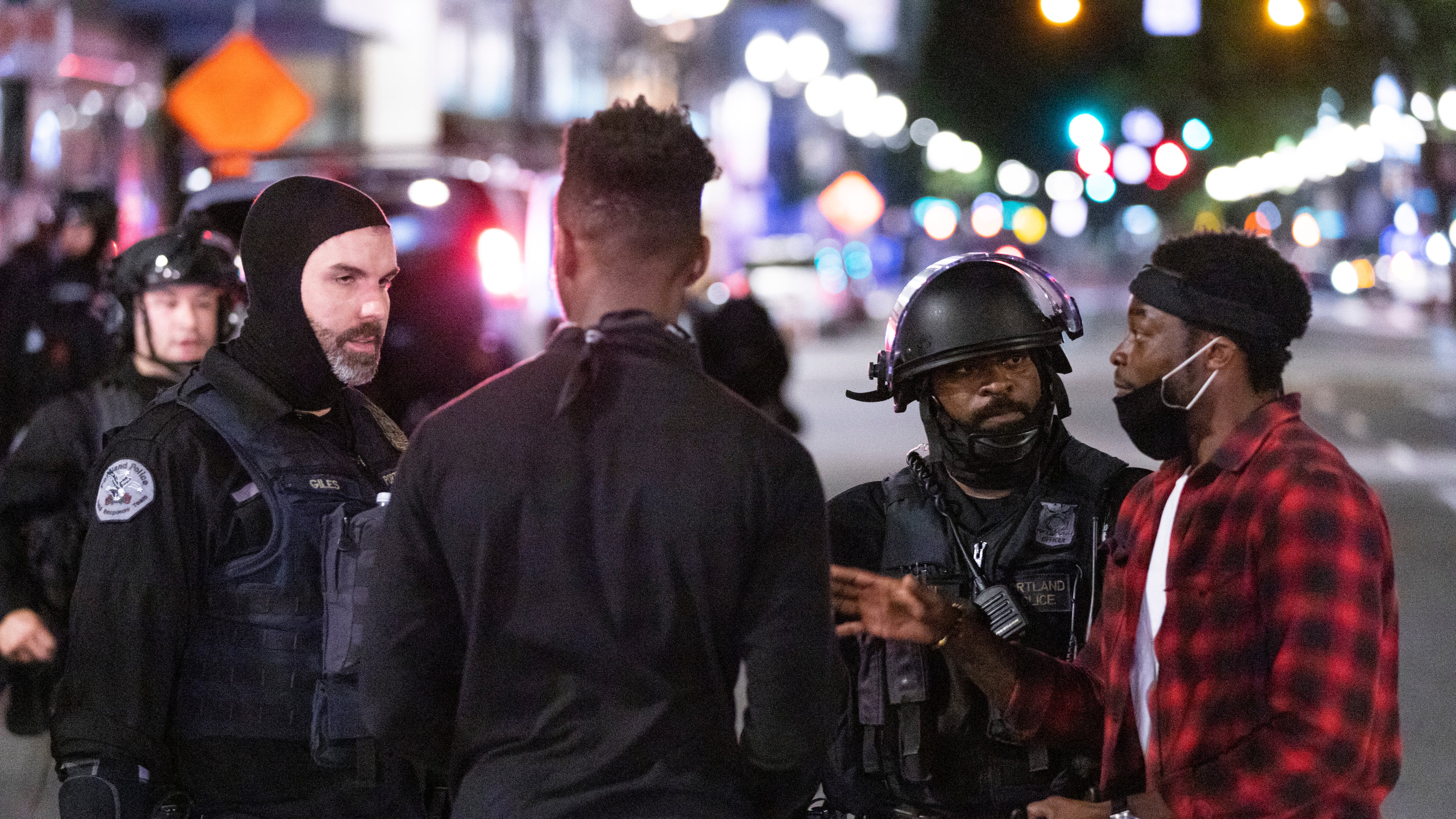Mayor Ted Wheeler is asking the Portland City Council to reestablish a uniformed police squad to patrol communities impacted by fatal shootings.
On Thursday, Wheeler joined a group of religious leaders seeking to reduce shootings in Portland's Black community in backing a proposal, drafted by police, to create a uniformed patrol team to prevent gun violence, increase funding to shooting investigations, and create an independent oversight committee to watchdog the new police patrol.
The Thursday afternoon press conference was a delicately orchestrated effort to resurrect police street patrols in predominantly Black neighborhoods experiencing a wave of fatal shootings, less than a year after the City Council dismantled the Portland Police Bureau's Gun Violence Reduction Team.
The GVRT was disbanded after years of complaints it targeted Black people with disproportionate arrests and harassment.
Wheeler said the new unit would be different from the GVRT because it would share data transparently, would have a limited scope of work, and was sought by Black Portlanders.
"We are not bringing it back," he said in response to a reporter's question whether the new unit was the GVRT by a different name. "The part of GVRT that was objected to was that there was not community oversight, there was not a clear objective."
The press conference Thursday came after a yearlong wave of gun violence and 15 fatal shootings in the new year. The most recent—the killing of a young couple in Khunamokwst Park and another slaying in broad daylight in Dawson Park—seemed to spur urgency in restoring funding for police patrols.
Both the mayor and the religious leaders he joined on a Zoom call requested City Council also approve increased funding for the Office of Violence Prevention, an office separate from police that sends street outreach workers to talk to gang members and support traumatized families at hospitals.
"The success of this work will be measured by lives lost or lives saved," Wheeler said, "so we must be willing to invest in solutions."
The Interfaith Peace & Action Collaborative, the group calling for action, sent a letter to City Council today, asking for increased patrols coupled with greater oversight, among other requests.
"We recognize your immediate need to address serious concerns about racial justice," wrote Rev. Matt Hennessee, the group's chairman. "We understand why the previous council voted to make significant cuts and changes to the Police Bureau. We acknowledge the serious reforms and major changes that need to occur in policing. However, we also believe defunding the Police Bureau without replacement programs and interventions caused a vacuum and put many people at risk and caused others to assume there was no accountability.
"Cuts to the Police Bureau created a vacuum that undermined public safety and the very communities whose voices the council—and our community—seek to amplify," Hennessee continued. "We are deeply concerned about the dramatic increase of violence on the street. People are getting killed, injured and traumatized. The cycle of retaliation will continue until we intervene and address the root causes of such violence."
The proposal by the mayor and religious leaders echoes a March 2 plan drafted by Assistant Chief Jami Resch asking for a uniformed patrol team consisting of two sergeants and 12 officers.
Their duties? "Conduct patrol operations to act on criminal intelligence gained in investigations, respond to shooting scenes, and proactively engage community members at risk of gun violence."
City Commissioner Jo Ann Hardesty, who championed the dissolution of the GVRT, was noncommittal Thursday.
"I'm not prepared to comment on this specific proposal at this time," she told WW, "but I look forward to learning more as well as hearing other community proposals and deliberating any corresponding financial requests during the budget process."

